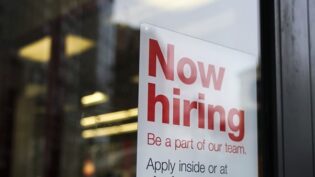
The “leapfrog effect” has become a global development buzzword, and it’s easy to see why. It’s an appealingly optimistic concept: the term refers to the phenomenon, in fast-growing emerging economies, of technological advances permitting shortcuts in infrastructure building. Instead of working through all previous iterations of a technology, countries are able to jump straight to the most current version. This saves them considerable time and money—and helps them achieve results that took more developed countries several decades. Though the existence of technology in itself doesn’t guarantee that this leap will occur, and successfully executing it requires support from both private and public sector actors, the leapfrog effect is likely to reshape several sectors in emerging markets.
Related Article: How Innovative Does Innovation Need to Be?
I keep close tabs on this development effect because of what my company, Trulioo, does. One of my main goals is to build greater financial inclusion through technology that enables those without banks to participate in a global economy. I see great opportunities for foreign companies willing to invest in new frameworks and systems, as they can then capitalize on this leapfrog effect. To explain how this is happening and the impact it can have, here are three examples of the leapfrog effect in action.
Communications
Improved communications is the classic example of the leapfrog effect, and it’s the sector through which many opportunities flow. To understand the potential, consider the effort that has gone into building the communications infrastructure in the developed world. Since the late nineteenth century, telephones have been the primary method of long-distance spoken communication. Setting up a telephone system traditionally involved running miles of cable between towns and houses, as well as installing wiring within each home. The amount of resources and time needed for a developing country to accomplish this from scratch is mind-boggling.
But with the advent of mobile phone technology, there is no longer a need to create this intricate network of wires. Instead, developing countries can jump straight into building mobile towers and connecting those to the main network. The resulting access has facilitated not just voice communications, but increasingly—with the emergence of cheap smartphones—access to mobile Internet. Entire countries are able to jump directly to the smartphone era.
The high mobile penetration rate and increase in Internet access in these emerging economies has created a growing market for online commerce in these countries. As a result, developing nations are poised for economic expansion as they suddenly become active trading partners on a global scale.
Banking
The World Bank’s latest statistics put the current global unbanked population at 2 billion. Although an improvement from 2.5 billion in 2011, achieving a goal of zero unbanked citizens is going to be difficult if we rely on the construction of brick-and-mortar banks.
Yet advances in mobile connectivity have outdated bank branches. As mobile banking grows in popularity in industrialized nations, it’s outpaced by parallel innovations like M-PESA and M-Shwari in Kenya, which have revolutionized the way developing countries approach banking. Today, groups like the Better than Cash Alliance are helping governments in emerging countries make the transition to electronic payments rather than relying on cash, as mobile money innovators everywhere vie to be the next M-PESA.
Identity
Our concept of identity has also changed in our increasingly digital world. The use of paper documents as proof of identity is becoming obsolete due to the cost and inefficiency of acquiring, handling and storing these documents, and the ease with which criminals can create forgeries. As governments and policy makers uncover reliable new ways to identify people, leveraging advanced technology and data can offer new, unique solutions.
Now that mobile phones, particularly smartphones, are more widely used (especially in developing countries) alternative forms of identity are on the rise. As each person uses their mobile phone, whether it’s to make calls, top up minutes, communicate on social networks or send mobile payments, they begin to cultivate a network of electronic records that can be used to uniquely identify them. In effect, they are creating a digital footprint that can be used as proof of identity.
This footprint can be used by financial services providers, not only to comply with ‘know your customer’ requirements, but also to demonstrate credit worthiness. MasterCard Advisors found that alternative sources of data, including mobile prepaid and social activity, could provide enough data to determine an individual’s ability and willingness to repay loans. Big data analytics companies have developed models that show that even a few months of this data can suffice to not only verify individuals’ identity, but to allow financial services companies to assess factors like income level and employment status.
This is where my own company comes in. Trulio is a global ID verification company that uses this type of data, as well as data from peer-to-peer marketplaces and online commerce, to help offer financial inclusion to the currently unbanked.
When combined, the leapfrog effects happening in communications, banking and identity could come together to help solve the problem of financial exclusion. Since developing countries don’t have to integrate new technologies into long-established systems, they’re able to make digital financial services widely available even while reducing risk for financial institutions.
As technology continues to become more affordable and accessible in developing countries, we will likely see more benefits of leapfrogging. Through the use of CID and other tools, I hope to someday soon see everyone have the same opportunity to participate in the global economy, regardless of location, race, circumstance, environment, or financial situation.
A version of this post originally appeared on the Next Billion site, here.
Author: Stephen Ufford, Founder & CEO of Trulioo, is an identity veteran who founded and successfully sold several consumer data focused startups over the last decade. As a serial entrepreneur, he likes to challenge the status quo and if it’s broken, he likes to fix it. In 2011, he launched Trulioo, a global ID verification company focused on building trust online, best privacy practices, and financial inclusion. Trulioo aims to solve global problems associated with verifying identities online, which has profound implications for banking, payment service providers and e-commerce in developing countries or rural areas where many people do not possess recognized identification, such as government-issued ID cards, credit, utility, voter registration, etc.














